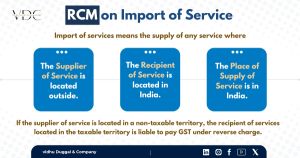For most of the sectors, foreign direct investment (FDI) is
allowed in the company as well as LLP in India, under the automatic route of
approval. When we say the automatic route of FDI, it means that the investment in the equity share
capital of the company or as a contribution to an LLP is made without seeking any prior
approval, however, after the incorporation of the company the share capital is to be remitted in the Bank
Account of the company or LLP from the foreign bank of the
investor/shareholder. Though there are some similarities in bringing FDI
whether you incorporate a company or LLP which are as follows:
1.
No difference in
reporting requirements under FEMA
After the remittance is
made the Indian company or LLP has to file Form FC-GPR to the RBI through AD
Banker. On the contrary, if the investment is not available through the
automatic route then before the incorporation of the company or LLP, prior
approval is required from the Central Government.
There is no difference
in reporting requirements, whether the investee entity is a company or LLP.
After incorporation of the company or LLP, the capital amount should be paid by
the investor by way of inward remittance through banking channels or out of
funds held in NRE or FCNR(B) account maintained in accordance with the Foreign
Exchange Management (Deposit) Regulations, 2016.
2.
No difference in
Accounting & Tax Compliances
From the compliance
point of view, the LLP and company both have to comply with the same accounting
& tax compliances in a similar manner.
However, if you are confused whether to incorporate a company or
LLP, analyze the significant differences as mentioned below in formation of
company & LLP before incorporating:
Significant Differences in LLPs & Companies
3.
Reporting
requirements under Companies Act, 2013
I.
Annual Compliance in
Case of a Company
All companies are
required to maintain various statutory registers, file annual returns, conduct
meetings for corporate actions, among other compliances as follows:
i.
Statutory audit of the
books of account
ii.
Prepare directors report
and circulate to all the shareholders of the company along with a notice for
calling of annual general meeting (AGM)
iii.
Held the AGM within its
due date
iv.
Transact following
business in the legally held AGM of the company
o To present the financial statement along with audit report for
adoption by the shareholders of the company and also to inform the shareholders
about the key decisions taken by the management during the period beginning the
last AGM to the current AGM,
o To seek the consent of the shareholders for appointment or
reappointment of the statutory auditor of the company for the period after the
AGM and until the conclusion of the next AGM
o To seek approval of the shareholders on the appointment of
directors on rotation, and
o To seek approval of the shareholders on the declaration of a
dividend to the shareholders on the recommendations of the directors of the
company.
v.
After the conclusion of
the AGM, the company has to file the following annual returns to the registrar
of companies within its due date with the prescribed filing fee.
o Form ADT-1: This is an
intimation regarding the appointment of the
auditor of the company within
15 days of the conclusion of AGM
o Form AOC-4: This is an annual
financial report of the company, wherein the financial data of the company is
filed with the ROC within 30 days of the conclusion of the AGM.
o Form MGT-7: This is an annual
return to the ROC which needs to be filed within 60 days of the AGM
o Form MGT-8: This is a report from
the company secretary. this is applicable to select kinds of companies only.
II.
Annual Compliance in
Case of an LLP
An LLP is required to
get their books of account audited only when the turnover during the previous
year has reached INR 40,00,000 or the capital of the LLP is INR 25,00,000. In
all other cases, the statutory audit is not required. apart from the statutory
audit, the LLP following are the returns which have to be filed before the ROC
i.
Form 11: This is the annual return of the LLP to be filed before 30th May for the year ended on 31st March of the year.
ii.
Form 8: This is the report of the financial statement to be filed
before the ROC before 30th October.
Conclusion
·
An LLP has over a
company is the reduced level of compliances under the LLP Act. Barring some
material compliances, an LLP has significant freedom to determine its
operations in accordance with the agreement between its partners.
·
From above you
would have noted that the setup and compliance-related requirements are almost
similar to both the entities, however, in the case of the LLP the statutory
audit is not required if the turnover is less than 40 Lakh or the capital is
less than 25 Lakh.
4.
Tax
Benefits
Difference in Taxation in the hands of Shareholder/Partner-
LLPs enjoy a slightly beneficial tax regime compared to companies
since share of profit paid to partners is not subject to tax in the hands of
the partners (domestic or foreign). Whereas dividend paid by a company is
subjected to tax in the hands of the shareholders. This is close to 20%
savings when compared with the applicability of tax on dividends on foreign
shareholders of companies.
Difference in Taxation of Company & LLP
LLPs are at a disadvantage with respect to tax on profits since
they are taxed at a higher rate of 30-34% on their profits in India, compared
to a company which is taxed in the range of 25-28%. But this seeming
disadvantage could also be used to an FI’s advantage depending on its tax
jurisdiction. Although Indian tax laws consider an LLP as a separate legal
entity, in certain jurisdictions an LLP is considered as a pass-through vehicle
for tax purposes. Due to this, any income earned by the LLP in India would be
treated as the foreign controlling partners direct income. To that extent, the
FI could also claim the tax paid in India on the LLP’s profits as a set off
against their collective tax liability in their home jurisdiction. Hence, FIs
should assess the tax implications in their home jurisdiction and preferably
invest through a special purpose vehicle in a jurisdiction that offers the best
tax advantage.








235 Likes